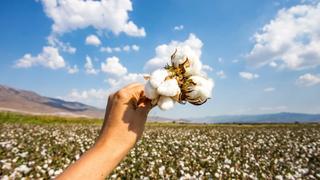India will have to make its policies relating to the minimum support price (MSP) mechanism compatible with the World Trade Organisation (WTO) and also shift domestic subsidies to direct income support, according to a working paper brought out by India Exim Bank.
“The current MSP programme of the Government is argued to have breached this admissible limit. India’s farm subsidy and export subsidy are increasingly being challenged at the WTO for violating multilateral trading rules. On May 9, 2020, the US alleged that India’s MSP programme for wheat and rice has breached India’s permissible levels of trade-distorting domestic support at the WTO,” the study said.
The US claimed India’s market price support for wheat is over 60 per cent of the value of production every year between 2010 and 2013 for which India has notified data. At the same time, direct payment to farmers will come under WTO’s Green Box and should, therefore, be promoted.
Agri exports challenges
Discussing strategies to enhance India’s agriculture exports, the bank said the country needs to develop a unified body to deal with market access requests for imports as well as exports. It should also handle all sanitary and phyto-sanitary issues pertaining to the agriculture sector.
“Under any bilateral trade negotiation, India needs to adopt a degree of flexibility in order to leverage its huge market of 1.3 billion people to get the best bargain for itself,” the study said. The bank said a robust infrastructure, including last-mile connectivity, is one of the important pillars of a successful agriculture export policy. “Availability of cold storage, warehouse and processing facilities, good roads, post-harvest infrastructure and world-class exit point infrastructure at ports have proved to be crucial in expanding exports of a country. Infrastructure development should also include strengthening of backward linkages in the agriculture value chain,” it said.
The study said a common information platform could be built, providing comprehensive information relating to trade opportunities and business environments in the different countries. Products need to be tweaked in a scientific and sustained manner to meet specific consumer tastes and requirements while looking at potential markets.
Tapping technology
Stressing the need for ensuring high quality standards and enhancing shelf life of the export goods, the India Exim Bank said technological intervention and R&D should encompass digitisation of land records, geo-mapping of lands, and registration of farmers and farm producer organisations (FPOs).
The entire cold chain should be revamped with adaptation of high-end technologies, increased mechanisation of farms, and developing new products.
Marketing and promotion of “Brand India” could support exports further into new markets abroad and lead to higher value realisation. The focus should also be on promotion of value-added, indigenous and tribal products globally.
Calling for adopting a public-private partnership, the study said it could transform the sector at multiple levels and the government will have to create an enabling environment for private investment.
Stating that development of value chain required skill development of the work force, it called for increased mechanisation, modernisation, upgradation, and adoption of technology in farm management and value chain development.
Investments
“This calls for a considerable and continuous investment in skill development and capacity building, with emphasis on industry and market-based requirements,” it said.
India Exim Bank called for promoting environment-friendly practices along with the efforts to increase production. “Incentives for promotion of organic farming, extending subsidy to the producers of green manure, biofertilisers and biopesticides and steps for promoting large-scale production of compost by utilisation of urban solid waste can be adopted,” it said.
The bank also called for convergence of different government schemes into a unified scheme on a single platform.








Comments
Comments have to be in English, and in full sentences. They cannot be abusive or personal. Please abide by our community guidelines for posting your comments.
We have migrated to a new commenting platform. If you are already a registered user of TheHindu Businessline and logged in, you may continue to engage with our articles. If you do not have an account please register and login to post comments. Users can access their older comments by logging into their accounts on Vuukle.